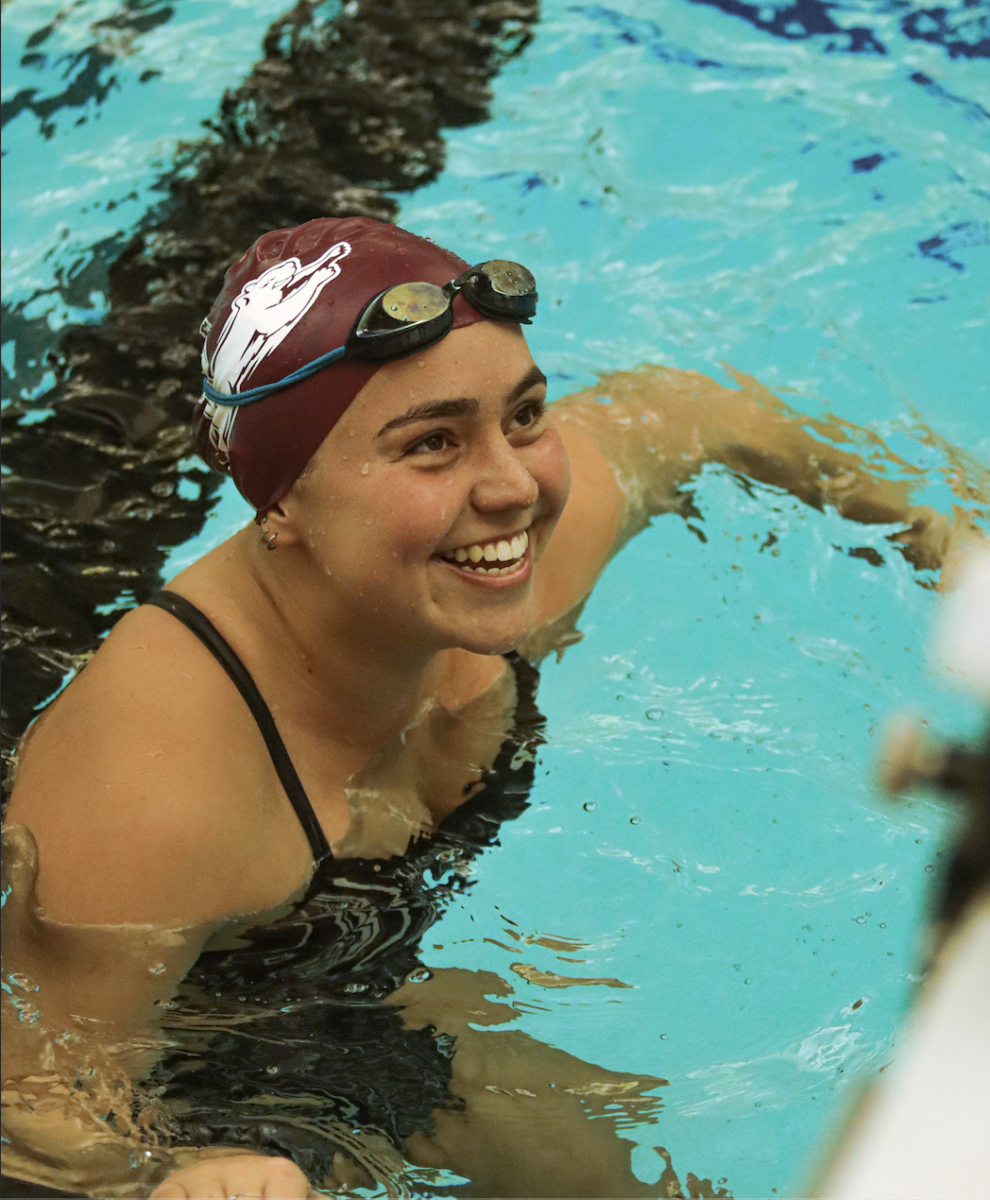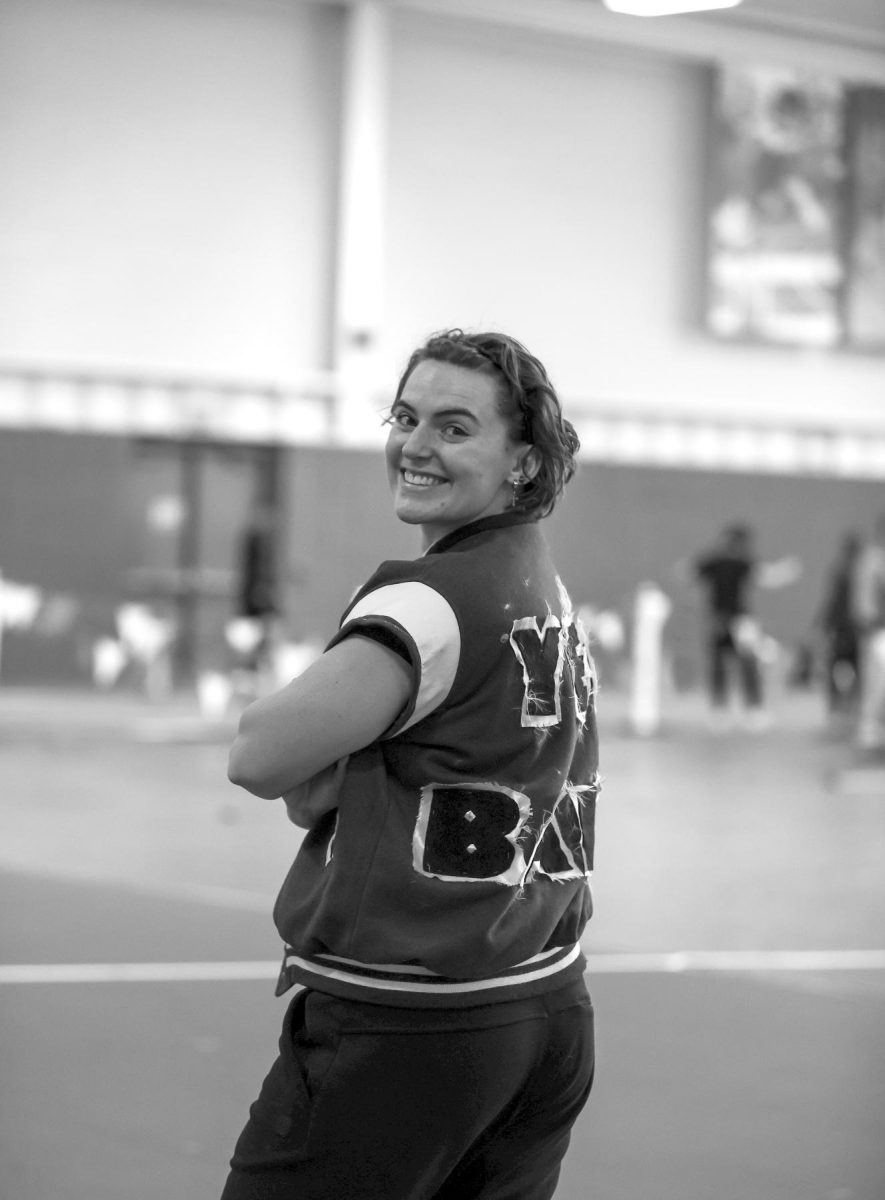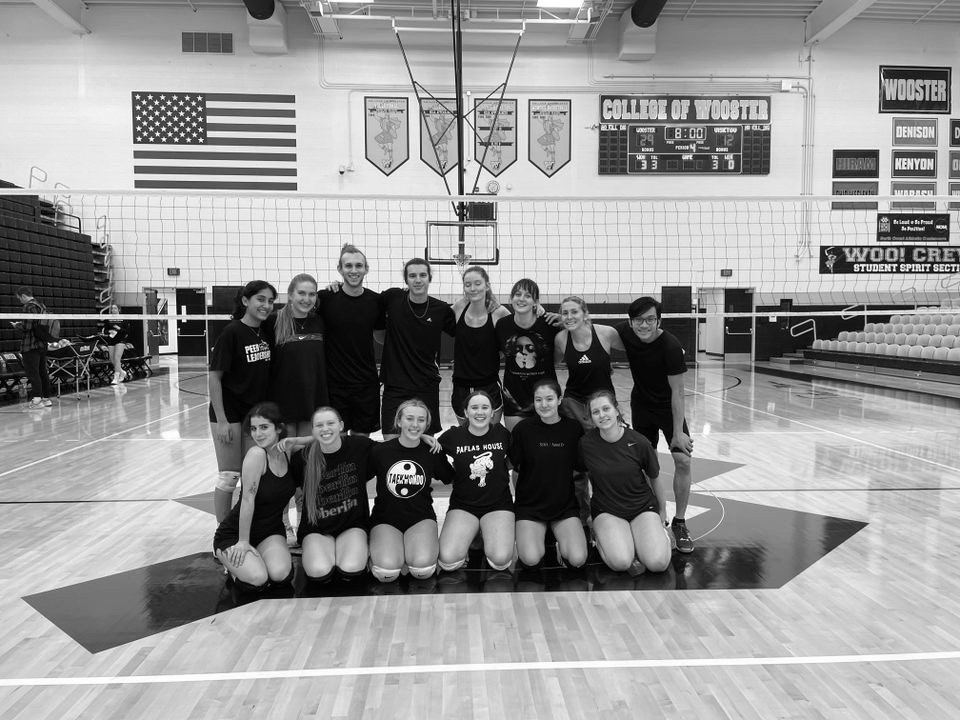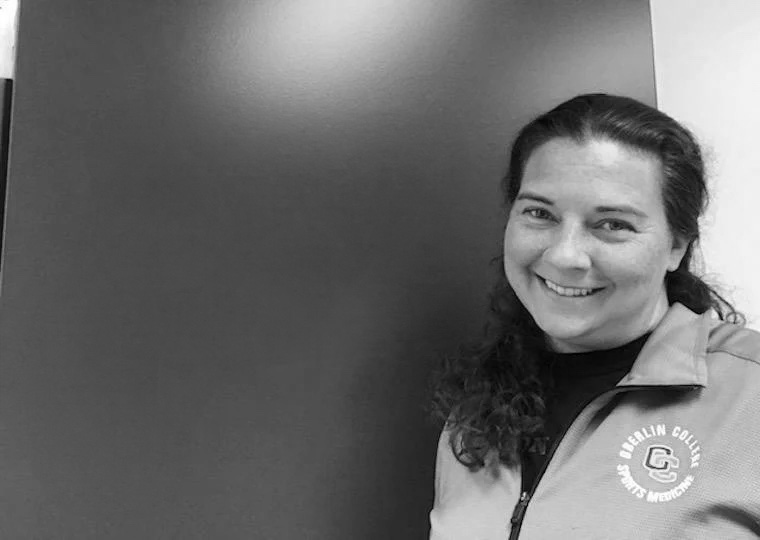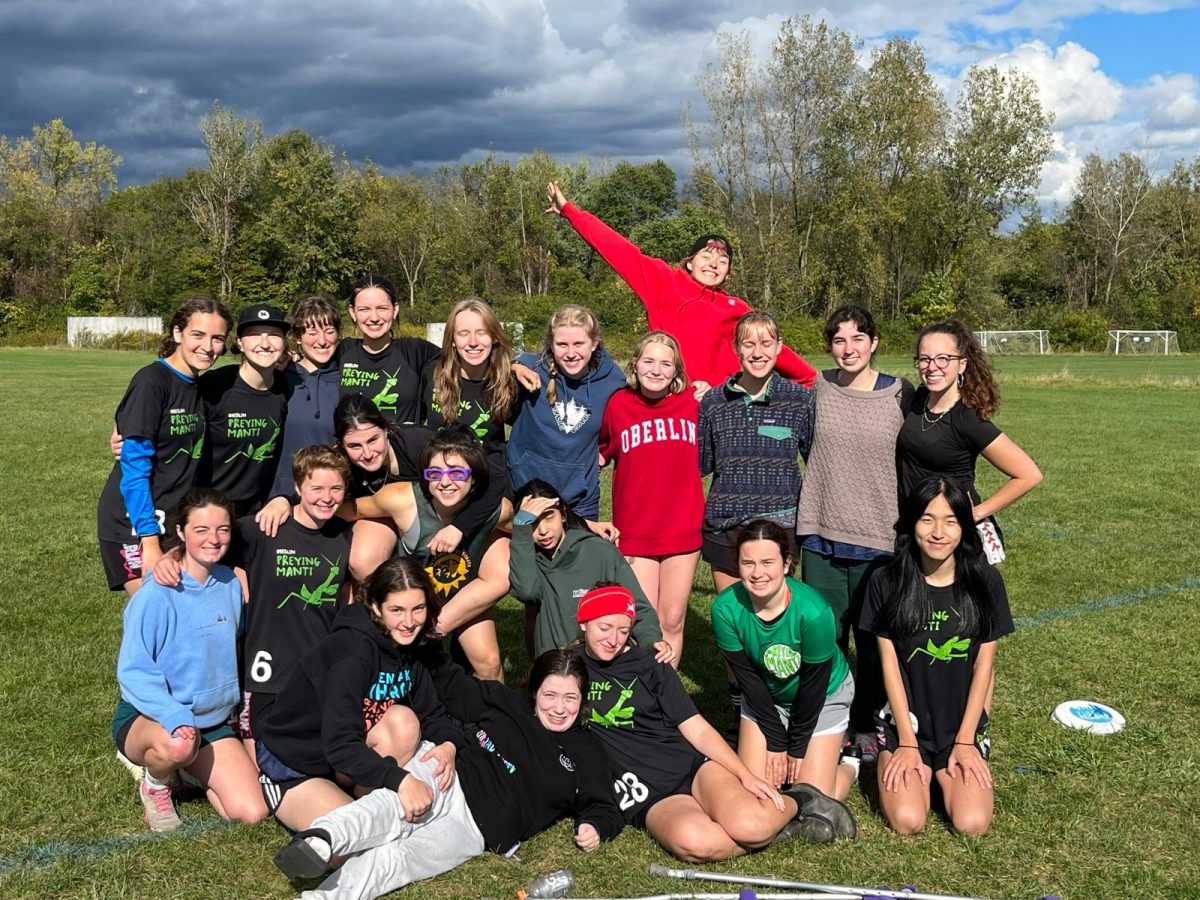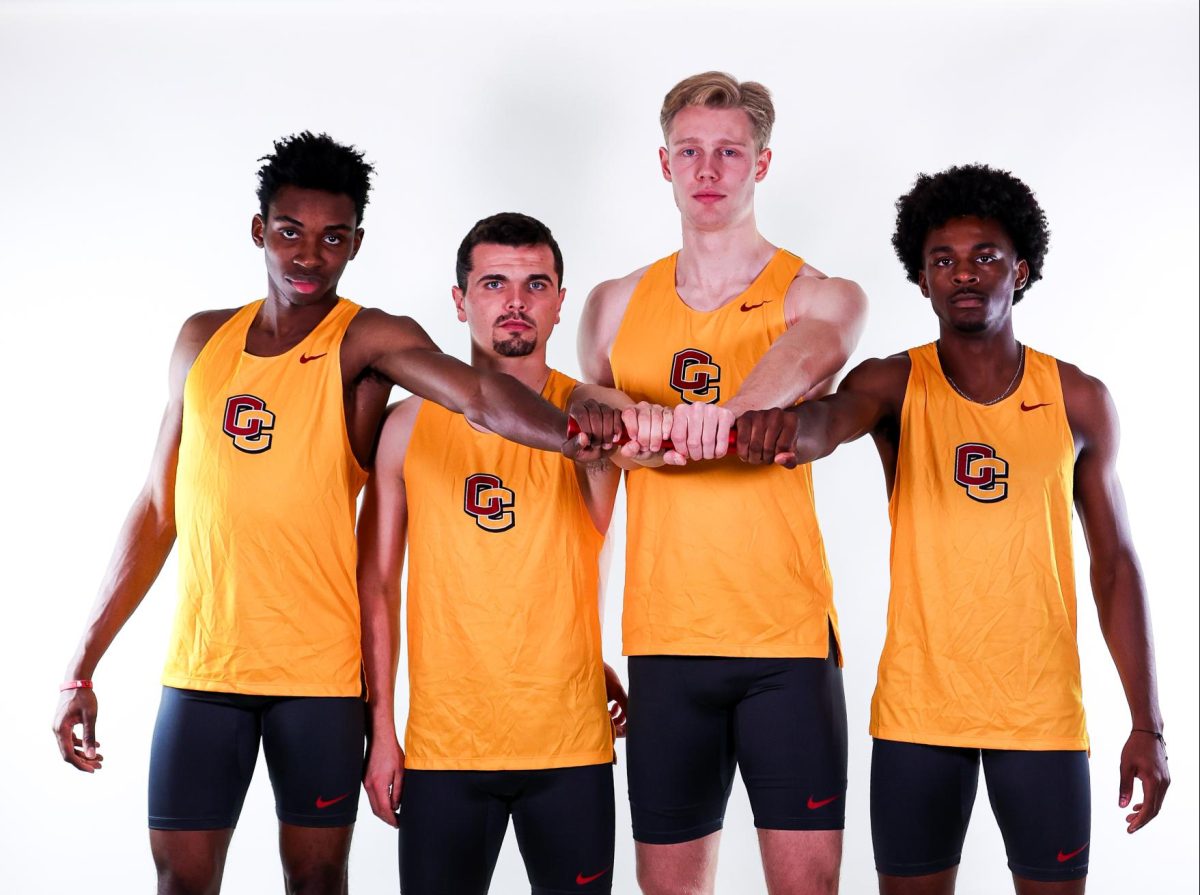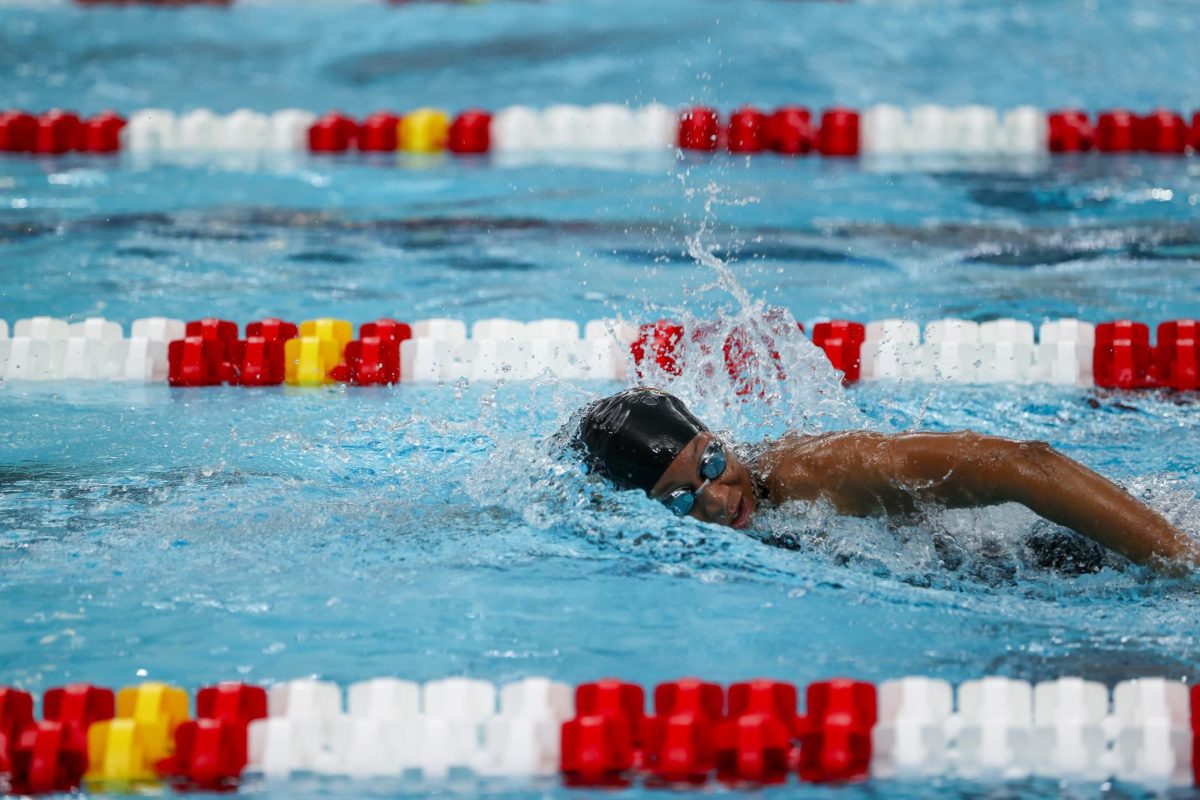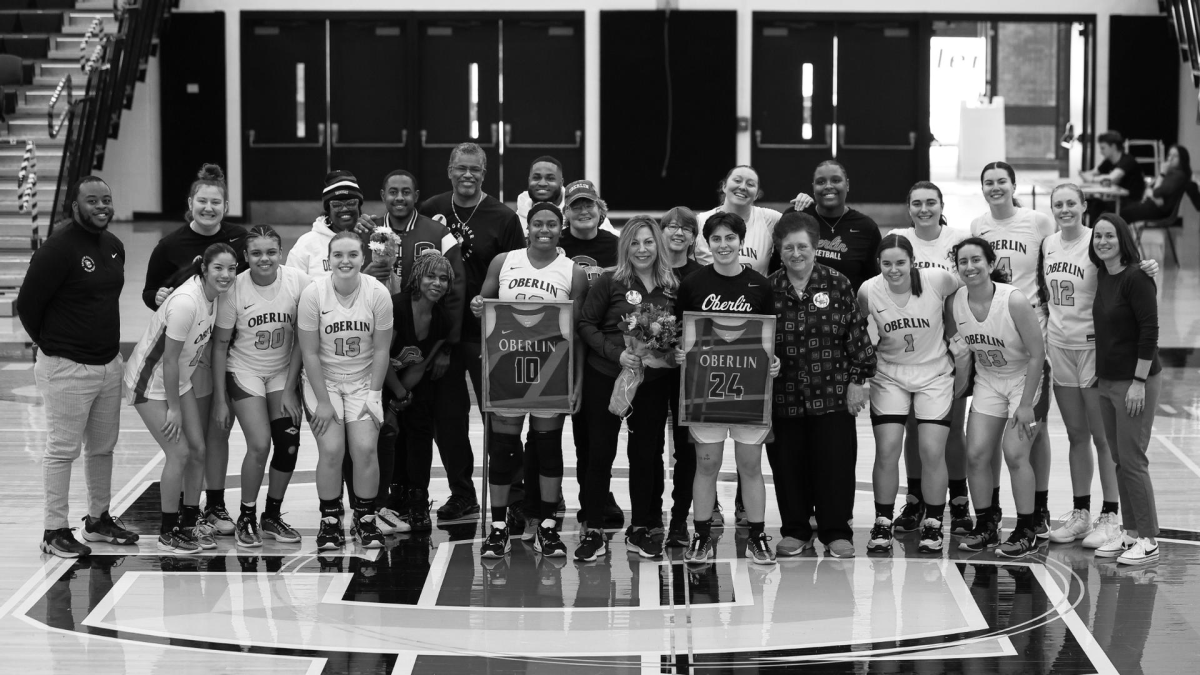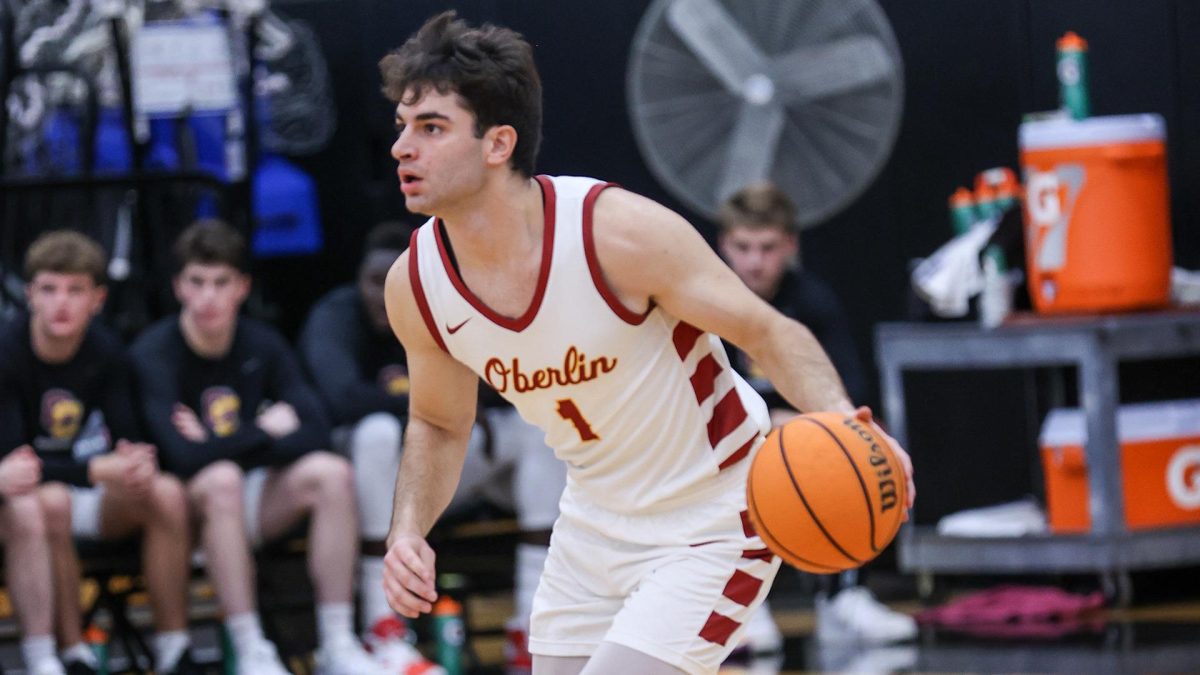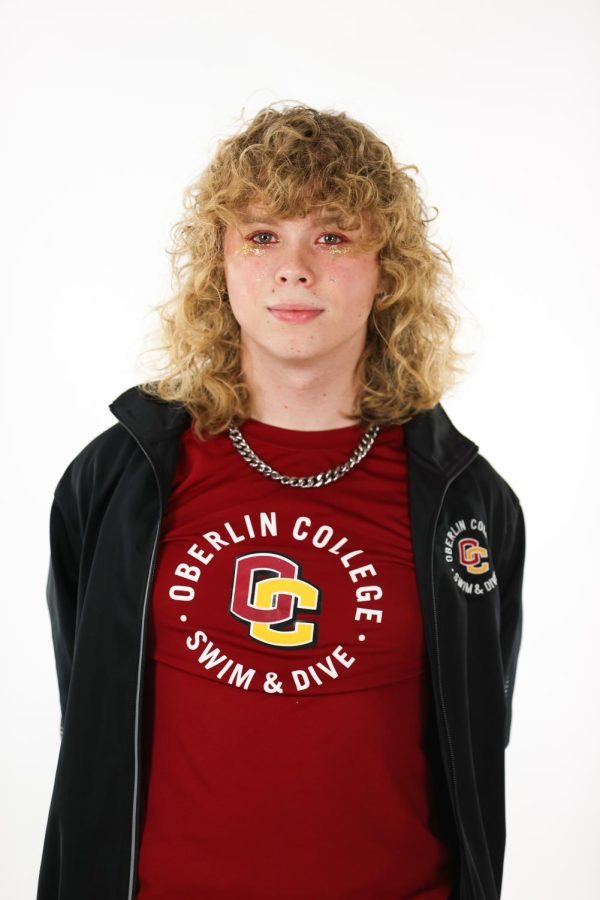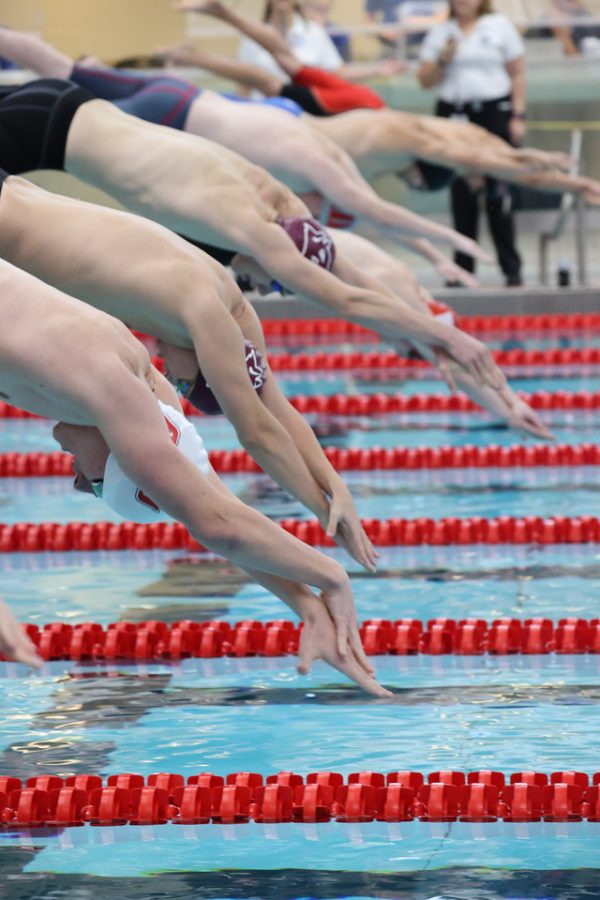Emily Ferrari and Audrey Weber are both fourth-years and captains of the women’s swim and dive team. Weber is from the Cayman Islands, majoring in Anthropology, Hispanic Studies, and Latin American Studies and Ferrari is from Cooperstown, NY, majoring in Environmental Studies and Biology.
Throughout their season, which lasts from September to mid-February, the team partakes in a rigorous practice schedule. Each week, they start practices at 5:45 a.m. on Monday mornings, followed by a second practice along with a lift in the middle. Despite this time commitment, the seniors couldn’t imagine a world where they weren’t swimming.
Weber has been swimming competitively since she was nine years old, and Ferrari since she was eight.
“For me, I could not have pictured my life without swimming, and it’s really difficult for me to picture my life in the future without swimming,” Weber said. “I think a lot of that has to do with how swimmers really work hard and I like the feeling of being with my team and getting through a really tough set together, or joking around on the bus on the way to a meet, or eating dinner together after practice. Those are things that I really value and I know I’m gonna miss once I graduate. But I think I’m lucky that every single team I’ve been on has been a really great group of people that are all super dedicated, super hardworking, and also willing to have fun.”
Ferrari appreciates the swim team for the values that they share.
“Swimmers as a group of people are really interesting and dedicated,” Ferrari said. “ There’s a certain value to them that other people — I don’t know, I don’t want to say ‘don’t always have,’ but there’s just something about swimmers and the culture that a swim team builds in my life that I really always wanted to keep. It’s kind of weird to be graduating and think of myself as a swimmer and over my competitive career per se. But honestly, that team environment and team culture and just the mentality of a swimmer — that I don’t even know how to describe.”
In contrast to some other sports, being named captain is not an election process, but instead decided by the coaches who use their judgment and receive recommendations from previous captains. Both seniors were named captains at the end of their second year and have continued to remain in the position since.
“I know in other sports, the best players are often chosen to be the captains, and that’s definitely not how it works on the swim team,” Weber said. “We’re not the fastest people on the team, so I think a lot of our role is being a role model to other people, so that’s a big responsibility. Also, serving as an intermediary between the coaches and the team, although we’ve been trying to kind of change the leadership structure a little bit so that more people can feel included and feel like they have a voice directly to the coaches.”
Swimming is both a team sport and an individual sport. Swimmers race against competitors to improve their own times while competing to improve the team’s standing, and working to improve their technique and endurance. As captain of a team unique in this way, Ferrari emphasizes the spatial awareness needed to navigate being captain of a swim team.
“I feel like you have to be aware of your mindset and where you are because obviously you need to be in the mindset to go out and race and be hyped and excited for your races,” Ferrari said. “But also, at the same time, watching out for the team and noticing, ‘Oh, maybe this person is really anxious about this event, or they’re nervous before this’ and just taking a second and talking with them and helping them get ready for their races is a lot of work. I also did that as a teammate and a member of our team, so I don’t think that was a behavioral shift once I became a captain.”
Weber points out that a common misconception people have about swimming is that it is solely individual, when in reality, swimming as a sport would not be attainable if you were by yourself.
“When it comes to a meet, yes, it’s just you and the pool, and that’s what it really is,” Weber said. “But, whatever you do, whatever place you get, that determines the points for the team. At the end of the day, your contribution can decide whether or not the team wins.”
Out of season, the captains run captains’ practices, which are lower-stakes and meant to keep the team in shape. During this time,
the team lifts, swims, and plays occasional water-polo games.
“We are also in charge of the team’s Swouse,” Ferrari notes.
“Swouse” is the term the team uses to refer to the swim house.
This team is very closely bonded and spends the majority of their time together, both in and out of the pool. Weber notes how at their last conference meet last year, which is hosted at Denison University every year, the team was just as engaged and excited as the beginning.
“I’ve never had more fun than our conference meet last year,” Weber said. “Everyone was swimming so hard and doing their best, but also you could see that our team was having more fun than any other team there. We were just joking around with each other. So it’s definitely the people that make the team.”
Weber and Ferrari’s first season occurred during the COVID-19 pandemic, so they aren’t familiar with how the team operated pre-pandemic. As a result, they have prioritized creating new traditions. They express how much the team has changed since their first year, and they are working hard to ensure the culture stays the same once they leave.
One of their favorite traditions is the team brunch hosted at the start of each year, which the class of 2024 started as an opportunity to get to know the new first-years and reconnect as a team after the summer. This year, all the fourth-years on the women’s team are housemates, so they invited the team to their house to reconnect.
“Also, as a women’s team, in the fall we always go apple picking and go to corn mazes and do fun fall activities,” Ferrari said.
Going into their second year as captains, Ferrari and Weber are experienced in motivating the team to work hard and push each other. Now, their goals have shifted to ensuring they leave a positive legacy for the program.
“Swimming is a hard sport,” Ferrari said. “It’s a lot of time where you can’t talk to people, you’re in the water, your head down, and it can be very hard mentally. So just making practices fun, and making that team environment as fun as it can be, is kind of what I’ve been trying to work on the most.”
Weber explains her shifts in goals during her second year as captain.
“At first it was more about trying to figure out how to be the best leader I could, and I think that’s still true, but also with the mindset of like, ‘I’m going to be leaving this team soon, so how can I help foster the best team environment I possibly can?’” Weber said. “How can I make it inclusive so that people feel like their voices are heard? How can I make sure that people are having fun and actually enjoying practice, enjoying the need to not take anything too seriously for myself, for my team now, but
also to set them up?”
Outside of swim, the captains balance various extracurriculars along with their jobs working for the Admissions Office.
Ferrari works as a senior fellow with Admissions, a peer tutor, and an Environmental Studies major representative. She also does research with Visiting Assistant Professor of Biology Andrew Pike, OC ’08, on mosquitoes in Lorain County. She is one of the
officers of the Student-Athlete Advisory Committee and also volunteers weekly with Oberlin Community Services.
Weber also works for Admissions as a tour guide and is part of OSteel, Oberlin’s steel pan ensemble. Along with this, she is an America Reads tutor and has been in the same fifth-grade classroom at Oberlin Elementary tutoring English language for multiple years. She also does research for the Anthropology department. Last summer, Weber did a study-abroad internship in Peru where she worked at an non-governmental organization in Cusco that works with Indigenous people. This past summer, she worked in Cleveland at Catholic Charities Migration and Refugee Services as an immigration legal intern.


